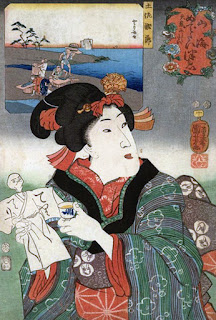ソメイヨシノが寿命を迎え、あちらこちらで伐採されています。これは終戦後に沢山の植えられたソメイヨシノが、寿命を迎えているからです。
ソメイヨシノはクローンだから、もう種の終焉を迎えているという声も聞かれますが、それは正確ではありません。
ソメイヨシノは、江戸時代末期に、オオシマザクラとエドヒガンという二種類の桜を交配させることで、作出された優れた特性を持った桜です。しかしながら、クローンゆえ、自家不和合性という性質を持っているので、自然交配によって子孫を残すことはできません。
動物のクローンは一代限りの寿命ですが、幸い植物のクローンの場合は、挿し木または接ぎ木(難易度高い)を繰り返すことで、理論的には何世代も生き続けることが可能です。
挿し木をする人が居なくなったり、予算がなかったり、環境の変化に耐えられなくなったら、ソメイヨシノを次世代に引き継ぐはできなくなるのでしょう。
この切り株の外周の入り組んだ形状が、なぜできたか不思議です。大阪関西万博の公式キャラクター・"ミャクミャク"の赤い部分のように見えませんか。年輪を見ていると、初期の頃は、全方位にまんべんなく成長しているようで、植え替えられた可能性もある。その後に、不均衡な周囲の環境(日照、栄養、水分、風)や病虫害にさらされたのかも知れません。
可哀想に、"ミャクミャク"も多方向から叩かれているからなぁ。
Somei Yoshino cherry trees are being cut down here and there due to reach the end of their life. This is because the large numbers of the trees that were planted after the end of World War II, are approaching the end of their lifespan.
Some say that because the trees are clone, its race has been already at the end, but that is not accurate.
The tree is an excellent cherry tree that was developed at the end of the Edo period by crossbreeding two types of cherry trees, Oshima Zakura and Edo Higan. However, because they are clones, they have a property called self-incompatibility and cannot produce offspring through natural mating.
Animal clones are limited to one generation, but plant clones can theoretically survive for multiple generations through repeated cuttings or grafting. (Grafting can be quite challenging.)
If there are no people to take cuttings, a lack of funds, or the trees can no longer withstand changes in the environment, the trees will be unable to be passed on to the next generation.
What caused the stump to have a complex outer shape? It resembles the red section of "MYAKU-MYAKU," the official character of Expo2025 Osaka, Kansai, Japan doesn't it? As I observed the tree rings, my fantasies grew wild. In the early stages, it seemed to be growing evenly in all directions, which led me to think it might have been replanted. After that, it is possible that it had been exposed to an unbalanced environment (sunlight, nutrients, moisture, wind), or to pests and diseases.
Unfortunately, "MYAKU-MYAKU" is also being criticized from many directions.

 |
MYAKU-MYAKU
official character of Expo2025 Osaka, Kansai, Japan |



































